How to get a clue what you can do with your PhD
So you (nearly) got a PhD in the humanities or social sciences. You probably always envisioned a scholarly future for yourself within academia, so you never gave much thought to other options for possible careers. But then reality dawns and academic careers appear not only highly competitive, but also extremely scarce and not necessarily won on the grounds of scholarly merit. Or you have tried and found the academic route was not as desirable or fitting after all. In short: you have to adjust your long held vision and plans. Where to start?
You could attend an event like the NRC / Academic Transfer Career Café where a group of experts talks about career opportunities for researchers around the theme “Too smart for the job market“, followed by workshops on CV building, networking and personal profiling. If nothing else, such a plenary session gives you some nice role models of PhD’s who carved their own way, see e.g. the story of Floor Basten on how she found her intellectual and professional life after walking the academic career path for quite a while. The power of a role model and a good mentor is not easily overstated.
You could also start closer at home if you dare. Ask your peers, your colleagues how they see you as a professional. What do they see you do when you are in your element? Use their wisdom and the knowledge of a bigger group to get input for your career questions. What is the question that bugs you most when thinking about your career advancement and career alternatives? At a recent career training I held, PhD candidates who are almost done came up with a ton of useful suggestions for each other, although they hardly knew each other beforehand. To give you an idea, here are some of the questions and answers from a group of social sciences and humanities PhD’s at the Erasmus University of Rotterdam:
How can I motivate myself for the last stretch of rewriting my thesis and turning it into a book?
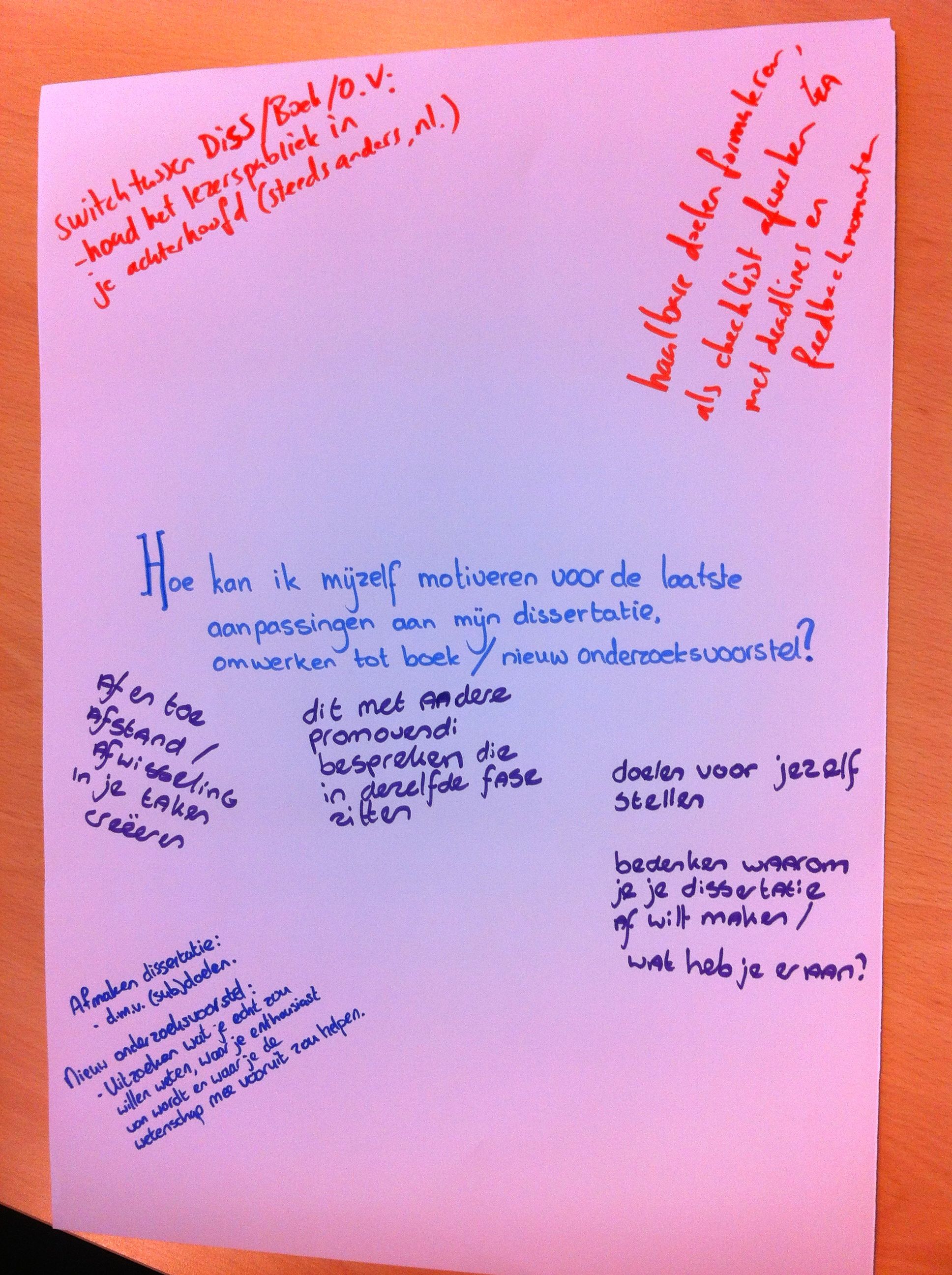
Which kinds of function can I hold (within and without academia) and how do I prepare myself for them?
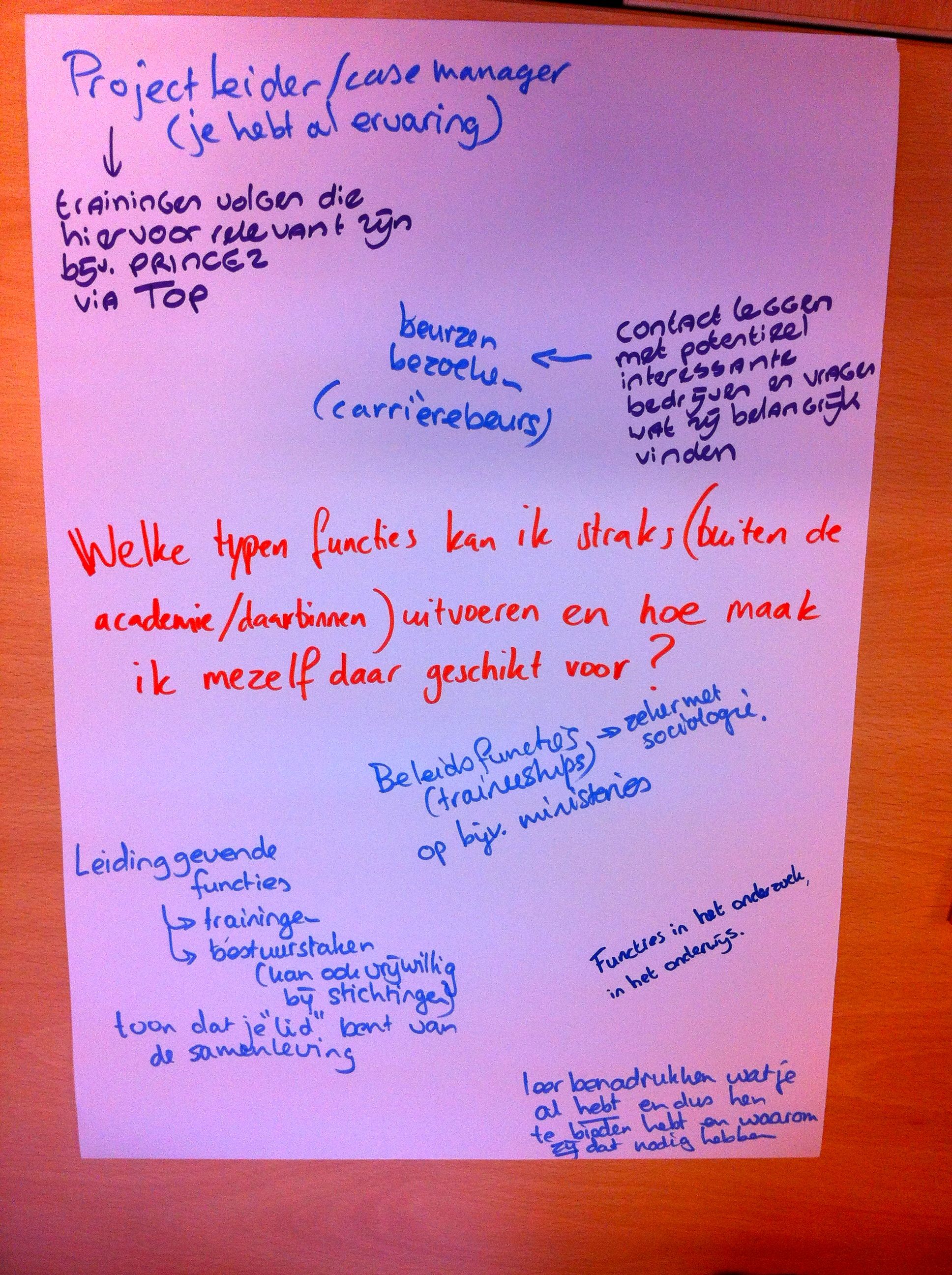
What are my options to do research other than at the university?
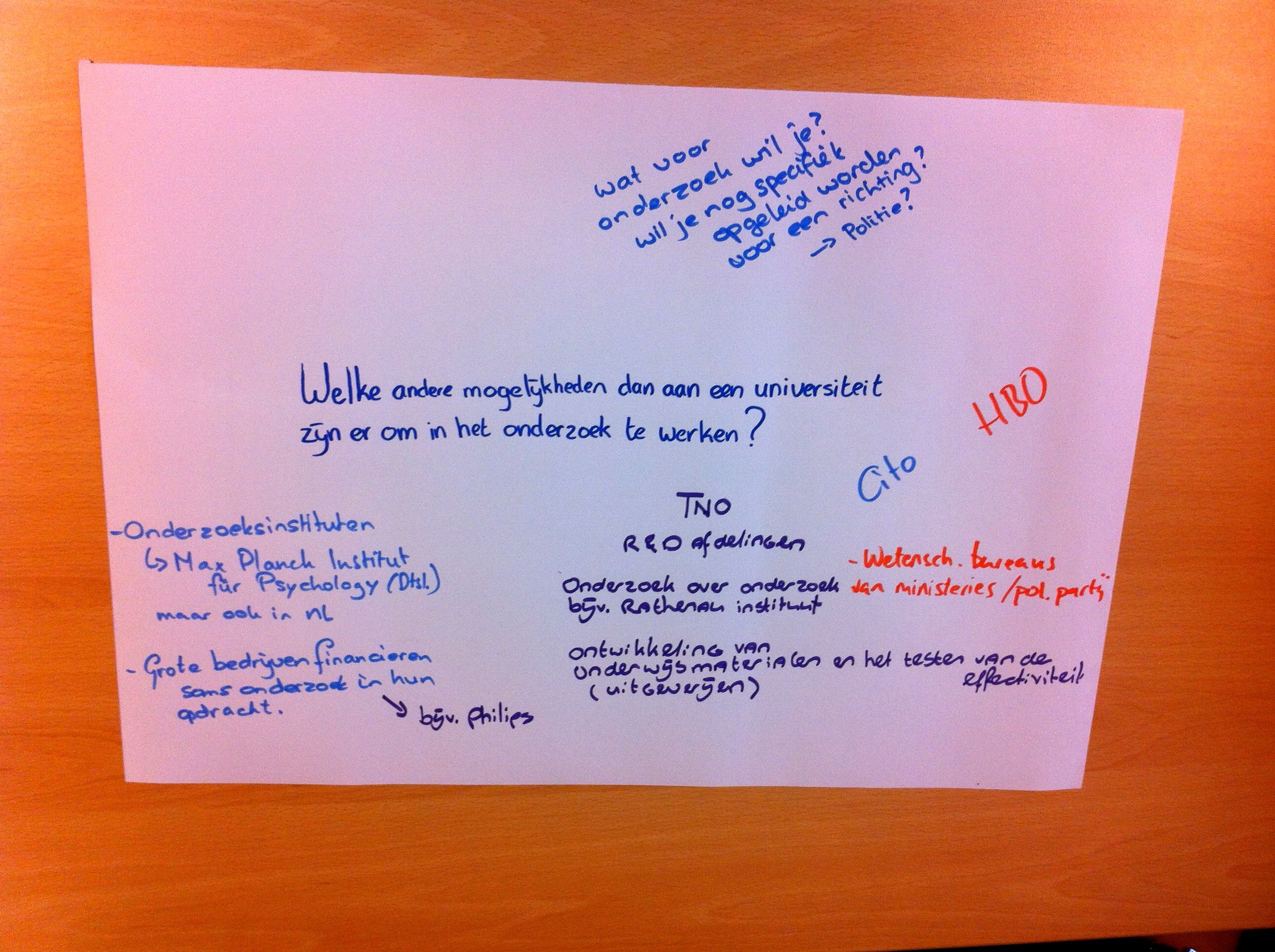
How can I enhance my chances at a career outside Academia?
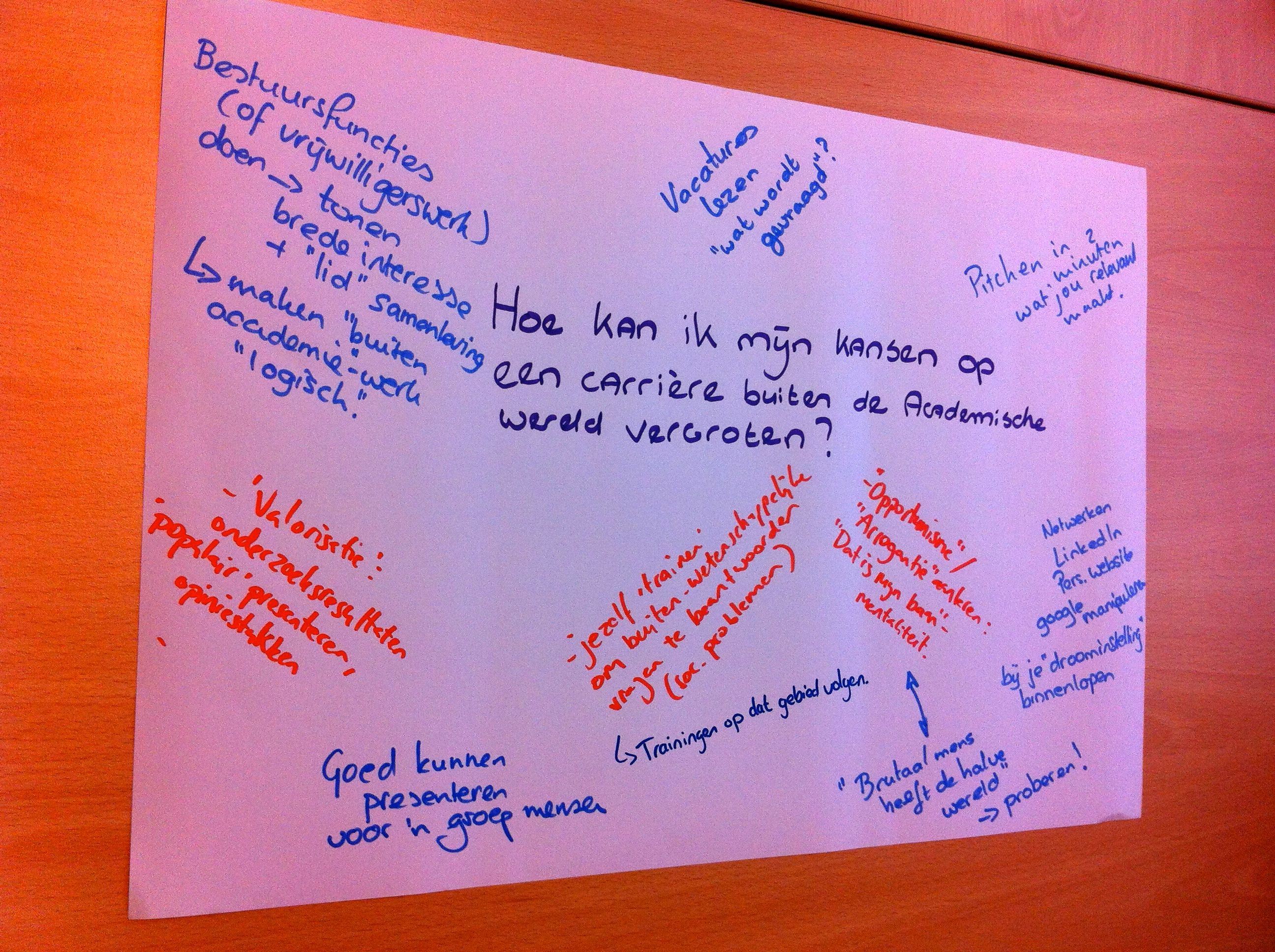
Finally, the third strategy to discover new, previously unthought of career options: you need to do some smart self reflection. Starting from values that are central to your life and career as a professional, you make a list of ideal career attributes (do not focus on concrete functions nor on characteristics of your current job that you dislike, but list outward and inward circumstances, contexts, aspects of the job of your dreams). If you are completely perplexed and have no idea how to articulate your professional skills (“I know a little bit about *superspecialist jargon on esoteric subtopic*”) the trick is to do a brainstorm about all skills that make up your PhD experience. The Rotterdam PhD group did this, proceeding from their central values of autonomy, recognition, confidence, courage to feel like the expert and daring to accept a challenge. The picture below shows the skills they came up with.
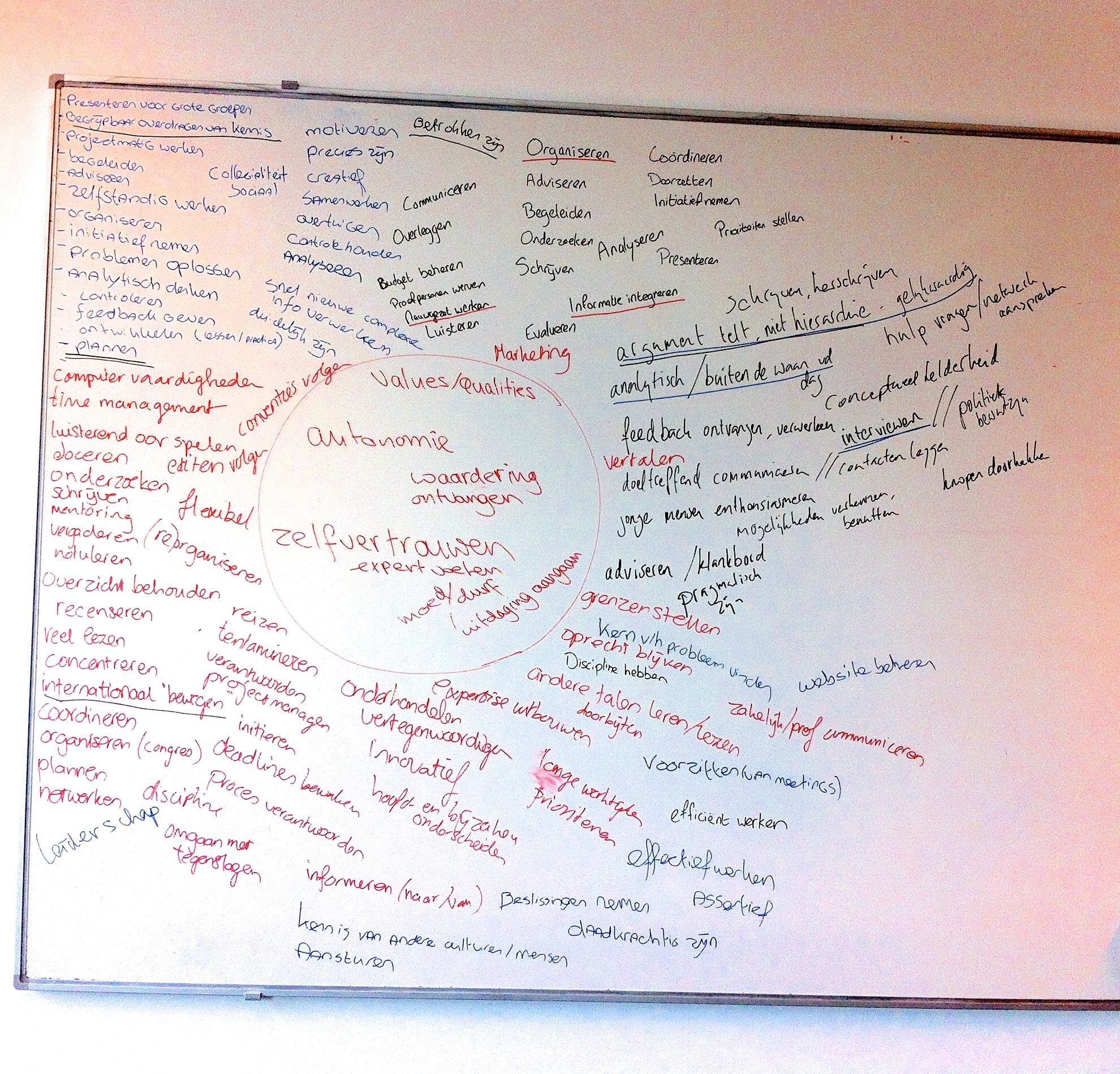
Looking at this treasure I would say you need not ask “what can you do with a PhD”, but “what do you choose to do with your PhD”. And that is an entirely different question.

Plaats een Reactie
Meepraten?Draag gerust bij!